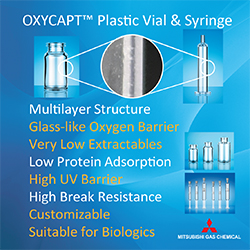Incannex Provides Update on Drug Candidate in Phase 2/3 Clinical Trial in Obstructive Sleep Apnea
Incannex Healthcare Inc. recently provided the following update on its proprietary IHL-42X drug candidate.
Obstructive sleep apnea (OSA) is characterized by a narrowing or obstruction of the upper airway during sleep, which interrupts breathing resulting in decreased oxygen uptake and poor sleep quality. This relatively common and chronic disorder is largely undiagnosed and untreated yet can result in a wide range of serious long-term outcomes, including cardiovascular disease, cognitive impairments such as memory loss, poor concentration, and judgment, depression and death or injury due to traffic accidents resulting from excessive daytime sleepiness. The costs associated with OSA are substantial, relating to lost productivity, and workplace and motor vehicle accidents. A literature-based analysis of 17 studies across 16 countries estimated that OSA affects some 936 million adults aged 30-69 worldwide, with 425 million having moderate to severe disease.
There are no approved pharmacotherapies for treatment of OSA. The best treatment option currently available is positive airway pressure (PAP) which pneumatically splints the airway open to prevent disruptions in breathing. However, PAP devices are not well tolerated by many patients due to discomfort, claustrophobia and the noise of the machine.
Incannex has designed IHL-42X, a combination of dronabinol (synthetic THC) and acetazolamide, for treatment of OSA. Both dronabinol and acetazolamide are clinically proven to reduce apnea hypopnea index (AHI), the measure used for diagnosis and monitoring of OSA. However, both drugs have limited efficacy, as well as unwanted side effects at efficacious doses. Dronabinol and acetazolamide affect OSA through different pathways. Binding of dronabinol to cannabinoid receptors, modulates signalling and activates muscles that dilate the airway, preventing collapse and obstruction, whereas acetazolamide induces metabolic acidosis which signals to the body that there is excess CO2 in the blood, inducing the taking of a breath.
IHL-42X is designed to combine these two activities, leading to increase in efficacy that reduces AHI to a greater degree and/or facilitating a reduction in dose of each active pharmaceutical ingredient to minimize the side effects. A video presentation of IHL-42X for the treatment of OSA has been uploaded to the Incannex website, link here: https://www.incannex.com/clinical-trail/ihl-42x-osa/.
To demonstrate proof-of-concept for IHL-42X in the treatment of OSA, Incannex conducted a Phase 2 clinical trial comparing three dose strengths of IHL-42X, low dose (2.5 mg dronabinol + 125 mg acetazolamide), medium dose (5 mg dronabinol + 250 mg acetazolamide) and high dose (10 mg dronabinol + 500 mg acetazolamide), to placebo with regards to safety and efficacy in OSA patients.
The trial was a four-period cross over study whereby every patient received each dose of IHL-42X and placebo for 7 days. The seven-day treatment periods were separated by 7-day washout periods to minimize any lasting effect of the treatment. On night seven of each treatment period, patients completed an overnight sleep study with polysomnography (PSG) to assess AHI and other sleep parameters. The results of the sleep studies were compared to baseline values, captured prior to the start of treatment. Change in AHI relative to baseline was the primary endpoint for the study.
The results of the proof-of-concept study confirmed the hypothesis that the combination of dronabinol and acetazolamide is effective at treating OSA. The average reduction in AHI compared to baseline for all three doses of IHL-42X, low (50.7 %), medium (48.1 %) and high (35.2 %), reduced AHI to a substantially greater magnitude than placebo (6.4 %).
When the difference in AHI relative to baseline was compared within each patient for the IHL-42X and placebo treatment periods the low dose was again most effective. The difference for all three doses compared to placebo was statistically significant (p<0.001). Further analysis of the within patient changes in AHI relative to baseline revealed that during the low dose treatment period 62.5% of patients had a reduction in AHI of greater than 50% and 25 % of patients experienced a reduction in AHI of greater than 80%. IHL-42X also improved oxygen desaturation index, sleep efficiency, and patient reported sleep quality.
The results of the proof-of-concept Phase 2 clinical trial investigating IHL-42X in patients with OSA support the hypothesis that IHL-42X would be a safe and efficacious treatment. This gave Incannex the confidence to proceed with a multisite Phase 2/3 clinical trial further investigating safety and efficacy of IHL-42X in patients with OSA.
To further assess the safety and efficacy of IHL-42X in patients with OSA, Incannex is conducting a Phase 2/3 clinical trial that will be conducted at fifty-five sites across the United States, Europe and other countries. The study has been named RePOSA, from Revealing the Efficacy of IHL-42X use in Patients with OSA. Reposa means to rest in Spanish, Portuguese and Italian. For this study, the high dose (10 mg dronabinol + 500 mg acetazolamide) of IHL-42X from the proof-of-concept study has been dropped due to the psychoactive effects of THC at the 10 mg dose. In the RePOSA study the low dose is 2.5 mg dronabinol + 125 mg acetazolamide and the high dose is 5 mg dronabinol + 250 mg acetazolamide. The drug products being tested in the RePOSA study are representative of the to-be-marketed formulation developed by Incannex.
In preparation for the study, Incannex conducted a pre-Investigational New Drug (IND) meeting with the US FDA to obtain feedback on the proposed clinical development strategy, safety and rationale for the IHL-42X drug product. This feedback was incorporated into the RePOSA Phase 2/3 study design and corresponding IND application. The IND was cleared by the FDA, and study may proceed notification was received in August 2023.
The RePOSA study consists of two component studies. A four-week Phase 2 dose ranging study that will determine the optimal dose of IHL-42X based on safety and efficacy in OSA patients, and a 52-week Phase 3 factorial study that will compare the optimal dose of IHL-42X, as identified in Phase 2, to the component APIs, dronabinol and acetazolamide, at equivalent doses, as well as placebo. The study is designed to facilitate a seamless transition between Phase 2 and Phase 3, reducing downtime and accelerating the development timeline.
The endpoints, inclusion/exclusion criteria and study procedures are the same across both component studies, which streamlines the transition process from Phase 2 to Phase 3. The target patient population is individuals aged 18 years or older with OSA who are intolerant, non-compliant or naïve to PAP. The study will recruit at least 560 patients, with a total of 355 patients receiving IHL-42X over the course of the study. The study is registered on clinicaltrials.gov with trial code NCT06146101. Start-up for the study is in progress with 22 sites selected in the US, 10 in Germany, and 1 in Finland.
Incannex is a clinical-stage pharmaceutical development company that is developing unique medicinal cannabinoid pharmaceutical products and psychedelic medicine therapies for the treatment of OSA, traumatic brain injury (TBI) and concussion, lung inflammation (ARDS, COPD, asthma, bronchitis), rheumatoid arthritis, inflammatory bowel disease, anxiety disorders, addiction disorders, and pain, among other indications.
US FDA approval and registration, subject to ongoing clinical success, is being pursued for each drug and therapy under development. Each indication under investigation currently has no, or limited, existing registered pharmacotherapy (drug) treatments available to the public and represent major global economic opportunities to Incannex and its shareholders.
Incannex has a strong patent filing strategy in place as it develops its products and therapies in conjunction with its medical and scientific advisory board and partners. The company holds 20 granted patents and over 30 pending patent applications. For more information, visit www.incannex.com.au.
Total Page Views: 1061













